Locks for plastic doors: types, selection and tips for use
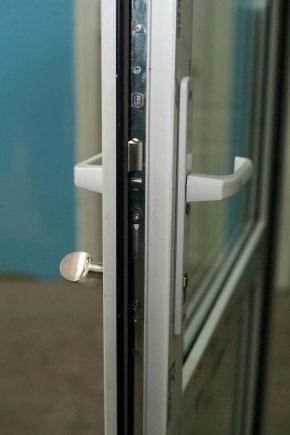
Plastic canvases have appeared on the market relatively recently. But because of their qualities and properties, they quickly gained popularity among customers. Ease of installation anywhere in the house or on the street, reliability and "retention" of heat in the house, harmonious design and discreetness - these are the advantages that plastic doors have.
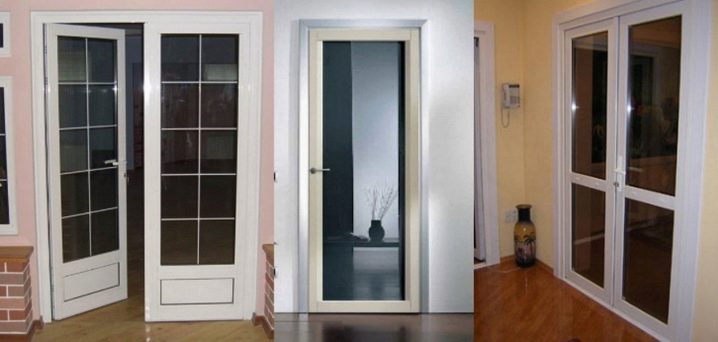
Features of plastic doors
Such doors are ideally adapted to temperature extremes and especially high humidity due to the synthetic materials that make up the plastic. The low weight is good for transporting and installing the door.
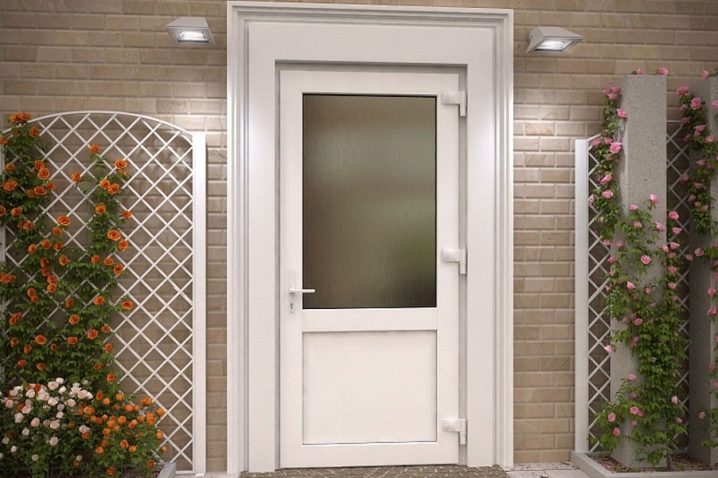
The difference between plastic doors and others lies in the materials. Previously, low-quality, cheap plastic was used, which eventually lost its neatness. Now, in the era of replacing all windows, entrance and interior doors, there are entire corporations that create and supply plastic doors with different fillings.
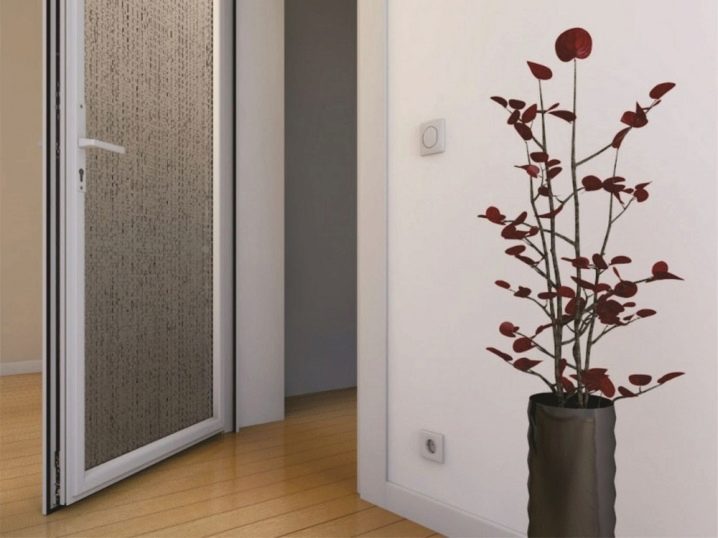
These can be soundproofed doors or doors with a heat retention function. They are made of a special frame, which is specially selected taking into account the load. It is worth noting that, in addition to the variety of designs, there are different types of locks for PVC doors.

Locks
Manufacturers of PVC doors do not try to somehow diversify the types of locks - all locks in their type and mechanics are completely identical to each other, without any fundamental changes. The difference lies only in the subtlety of the installation - it all depends on which profile was chosen for the door. From this it is determined which locking device will be installed later.
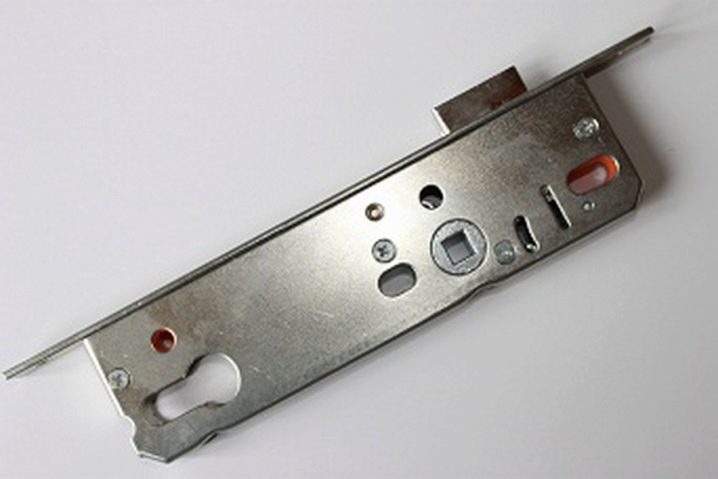
When buying plastic doors, you do not need to think about how to mount a lock in this door. Everything is much simpler: when ordering the required door, taking into account the size, the desired type of locking device is immediately selected from the price list provided by the contractor.
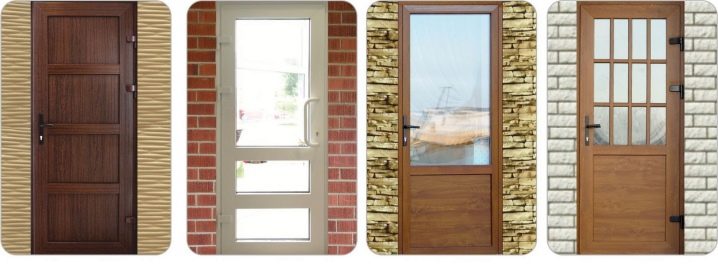
There are two main types of locks that are mounted on the door leaf - mechanical and electronic. Mechanical locks are simple, popular and are installed in every eighth door out of ten. The composition of such a device is quite simple: there is a case, crossbars and an important part of all locks - a secret mechanism.
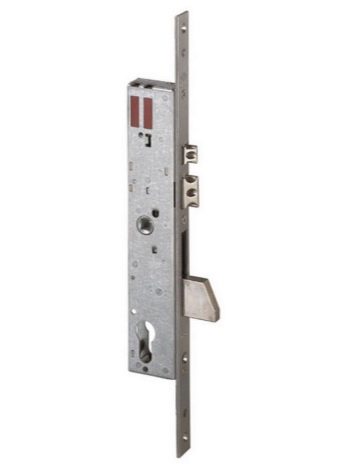
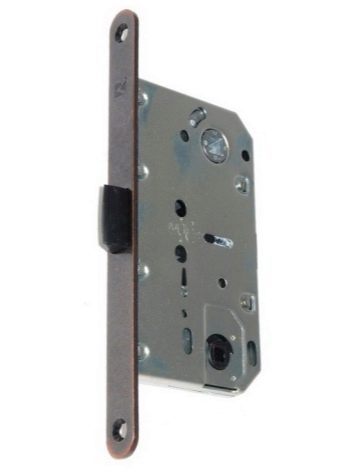
The secret mechanism is divided into two types.
- Suvaldny - this is a certain set of plates on which there are special cuts. Thanks to such slots, the deadbolt is activated when the lock is opened and closed directly with the key. Locking devices with such a filling are quite difficult to break, but due to the structure of the case, it is possible to use only a certain number of plates.
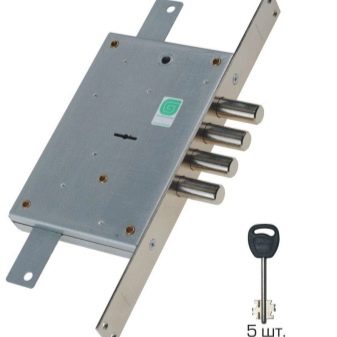
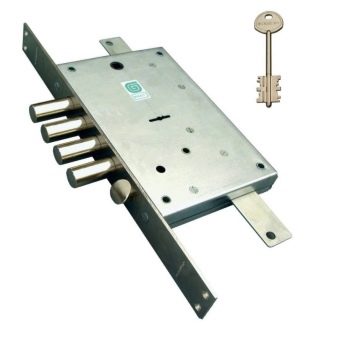
- Cylinder - mechanism with a drop-shaped block. Consists of a block in which there is a rotary cylinder and a number of spring-loaded pins. Each pin is divided into equal parts in a specific combination. Raising the cylinder, as in the case of turning the deadbolt, is carried out only if the key coincides with each pin in the desired lift. Cylinder locks are suitable for interior doors, as they are easy to use and convenient. But they may not stand up to being hacked and opened.
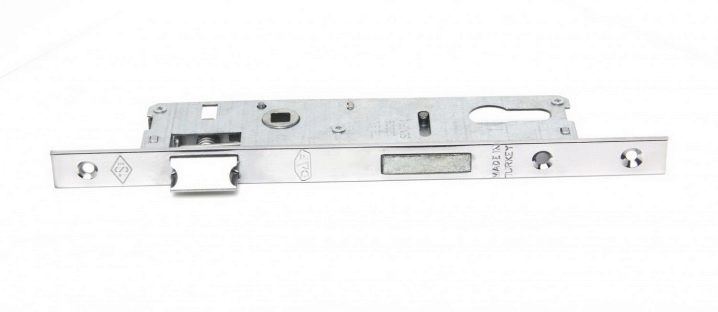
- Electronic locks - these are modern locking devices that are currently gaining special popularity, because this is a reliable solution that can prevent access to a certain room, site or house. Such a mechanism consists of a control panel, an electronic unit, a sensor that receives a signal, and wires.Such a device is remotely controlled. This is both its advantage and its disadvantage.
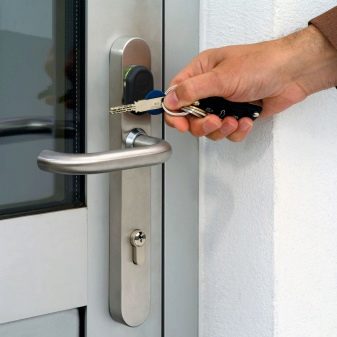
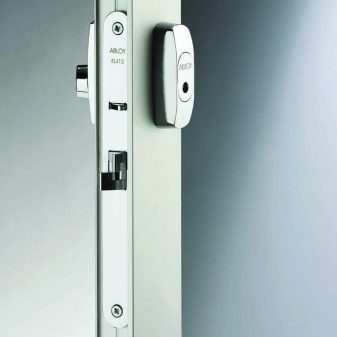
Locks by their type can be subdivided into electromechanical and electromagnetic. Among them may be found:
- code - the code on it must be entered directly from the keyboard;
- intercom - opens thanks to a special key-tablet, which also differs in its shape and functions;
- biometric - an expensive and reliable type of product, which opens only thanks to a fingerprint or palm print entered in the database.
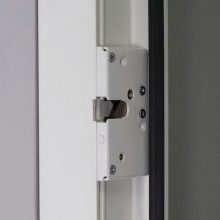
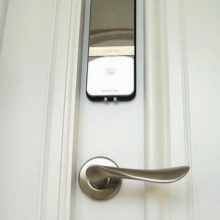
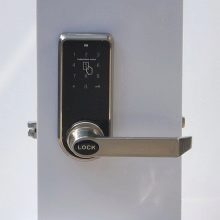
Features of locks
As the manufacturers say, self-insertion of the locking mechanisms in the door is almost impossible, because the selected size of the lock may differ from the dimensions that were originally intended for it. In this case, it turns out that the lock will not work either, and the frame of the door leaf itself will be damaged. Manufacturers put up for sale individual locks, which are made directly from plastic. In their structure, they have the same properties as PVC doors, have the same size and do not exceed the profile width. All this is aimed at ensuring that the lock does not rest against the filler or the glass unit itself.
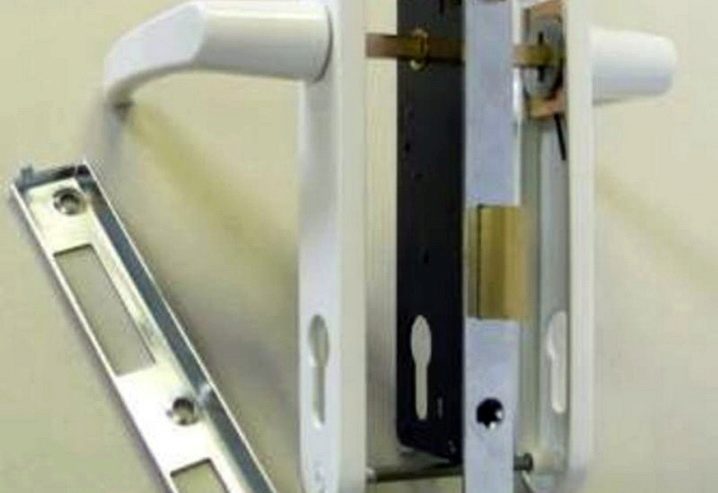
- Mortise locks popular because of their aesthetic appearance - they are discreet and not bulging, but for greater reliability, you can install an invoice. As noted earlier, a lock on a plastic door can be mortise or hinged. It should be noted that according to their properties, they are also divided according to the "points" of locking.
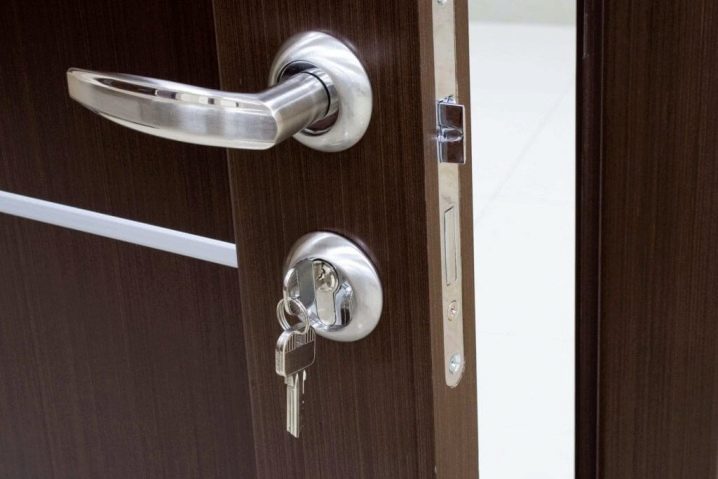
- Single point locks. As their name implies, this look is equipped with only one closing mechanism. It does not involve the need to tightly lock the door; in terms of reliability, it is completely unsuitable for installation on the street. The best option for such doors is interior installation.
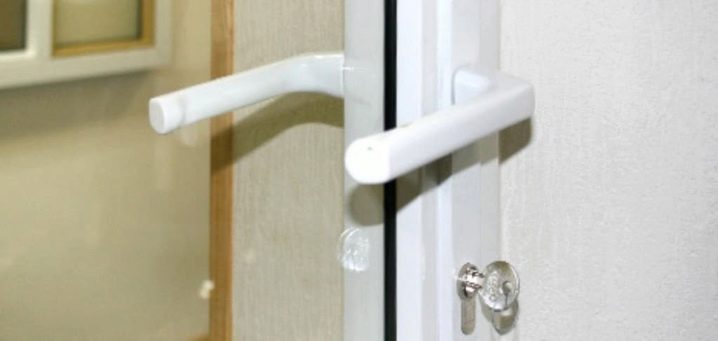
- Multi-point. A more reliable option in terms of its characteristics. Has two, three or more locking mechanisms. Tightly attracts and connects the door and the leaf, which increases the security against burglary. Unlike single-point locks, where the point of contact is in the middle, there are several of these points. With such a lock, noise insulation appears, and heat is retained in the room.
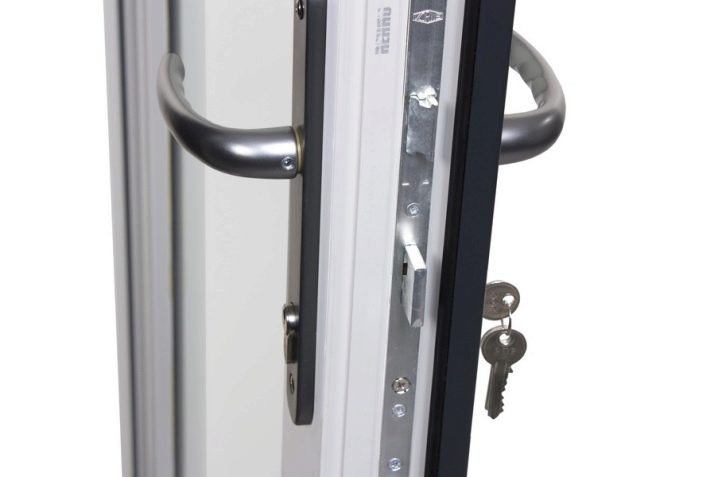
How to adjust?
With the high demand for plastic doors, there is a growing trend for the problems that arise with these doors. One of the problems is that the door leading to the balcony sagged and the lock no longer locks, or the handle does not turn completely. Most likely, the door really sagged due to the fact that it is open most of the time, and then simply drops to the floor, shuffling both it and the hinges. The lock on the door does not coincide with the hinges on the body, which is why there is no way to close the door.

In this case, you need to contact the master who installed the doors, since he has all the necessary tools for this. You can adjust the lock using a hex wrench, which you need to tighten the trunnion (mechanism) well, or, conversely, slightly loosen it. If the lock breaks down, it is necessary to replace it, and not try to repair it, since this undertaking will lead nowhere and may aggravate the current situation.
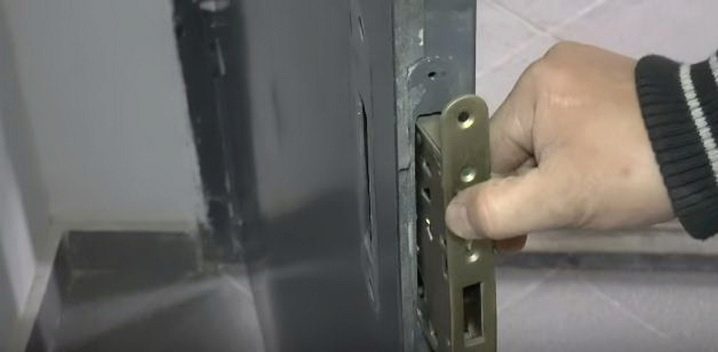
To change the locking device, you need a screwdriver and a Phillips screwdriver. You need to open the cover behind which the mechanism is hidden, unscrew it and remove it, then replace it. Replacing the balcony door lock is quite simple, because the mechanism itself is hidden behind the plastic in the handle itself - this makes it easier to replace it. You just need to get a handle suitable for the door. It is worth remembering that when installing locks, not only the choice of the locking device itself plays an important role in the reliability of the door, but also its correct installation. If you make rash mistakes, then the canvas will not be able to adhere to the frame, the handle will not turn to the end or stand in the desired position. You can also completely disable the lock.
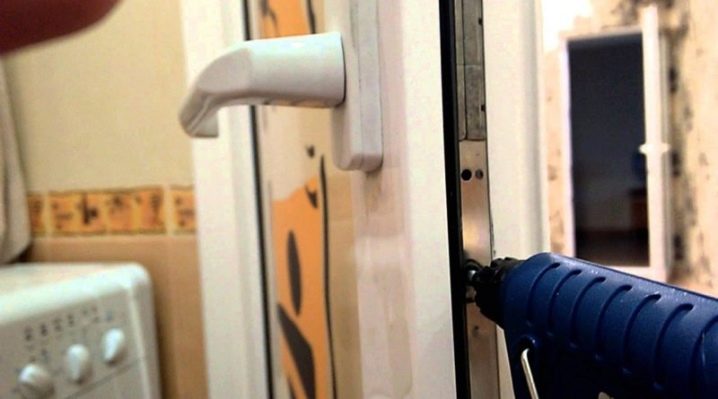
Replacing the lock is not as difficult as its initial installation in the canvas itself. If you remove it, you can find out on what principle this or that type of lock was installed: how exactly it was installed and secured. All this will clearly show and facilitate the subsequent dismantling. Another question arises when it is necessary to assemble the lock yourself. In this case, if there is no certain knowledge in this area, and the person simply does not know how to do it, or does it for the first time, then it is better to trust the master to avoid any problems. In this case, you can see how everything is happening, and take something to yourself.
For information on how to adjust the lock for a plastic door, see the next video.













The comment was sent successfully.